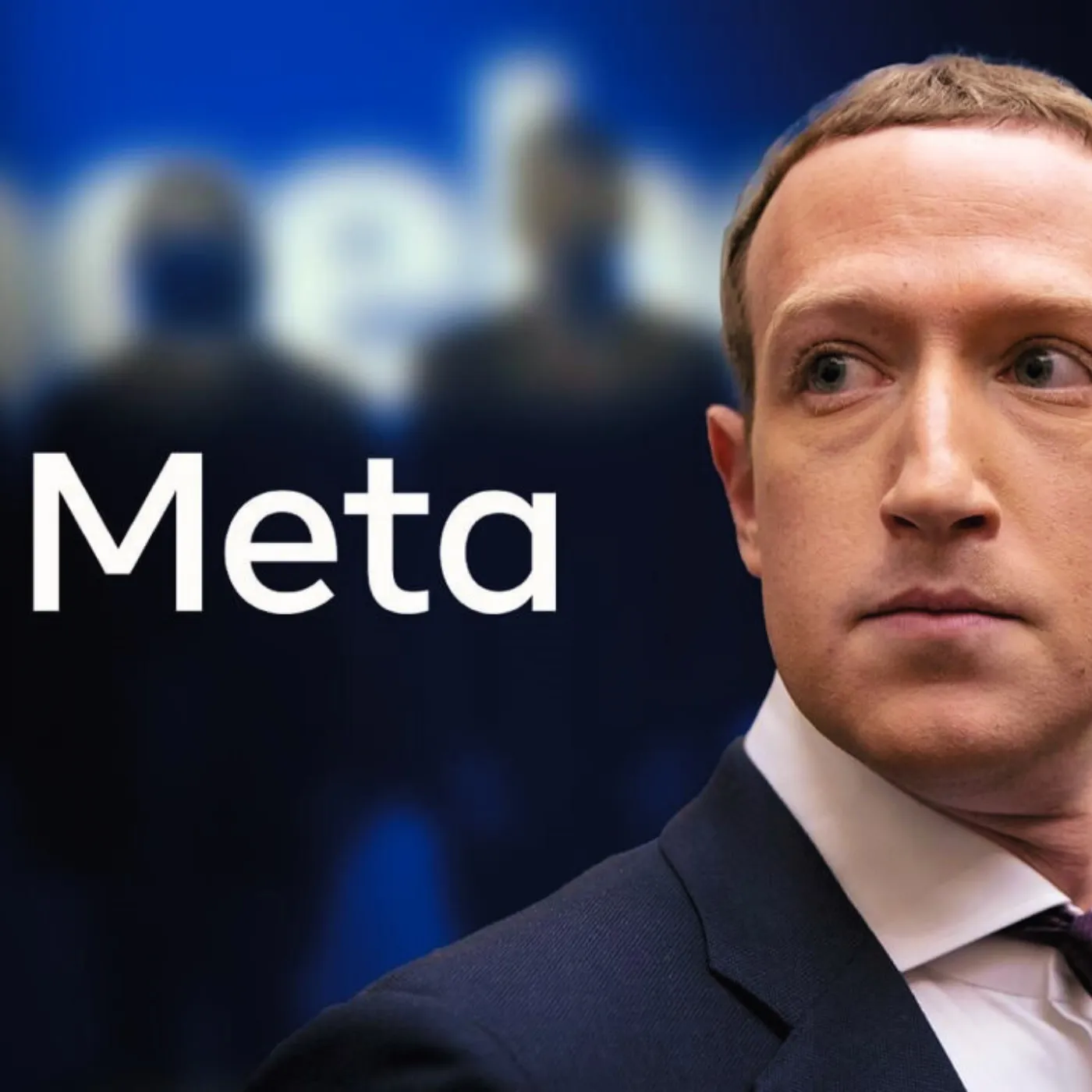

Mark Zuckerberg Unleashes Llama 4 AI Models To Take On The AI Powerhouses
In the rapidly evolving world of artificial intelligence, innovation never seems to stop. Every tech giant is constantly striving to outdo the competition, pushing the limits of what AI can do for industries, businesses, and everyday users alike. Meta, led by Mark Zuckerberg, has just added fuel to the fire by unveiling its newest weapon in the AI arms race: the Llama 4 AI models. With this bold move, Meta aims to challenge two of the biggest players in the AI space—OpenAI’s ChatGPT 4 and Google’s Gemini. The stakes are high, and the race for AI supremacy has just become even more competitive.

Meta’s announcement of the Llama 4 models comes at a crucial time when AI-powered tools have already become an integral part of daily life. From chatbots that provide customer support to AI-driven systems enhancing productivity and creativity, the demand for more advanced, reliable, and versatile AI models has skyrocketed. Meta, with its vast resources and vision for the future of AI, is setting its sights on conquering the competitive landscape, threatening the dominance of OpenAI and Google.

Let’s dive deeper into what Llama 4 AI models are, what they bring to the table, and how they could potentially reshape the AI landscape, all while positioning Meta as a serious contender in the AI arms race.

The Emergence of Llama 4 AI Models
Meta’s Llama series, which has already made waves with its previous iterations, is part of the company’s larger strategy to diversify beyond its social media platforms and strengthen its position in AI research and development. Mark Zuckerberg’s Meta is no longer just the owner of Facebook, Instagram, and WhatsApp. It has firmly entered the realm of AI with a vision to use cutting-edge technology to transform industries and lives.
The Llama 4 models, in particular, are being touted as the next step in Meta’s AI evolution. These models are designed to be more advanced, powerful, and scalable than their predecessors, with a specific goal of competing directly with the current titans of AI, including OpenAI’s ChatGPT 4 and Google’s Gemini.
One of the most striking features of the Llama 4 models is their ability to perform a variety of tasks, from natural language processing (NLP) to generating text, automating decision-making, and even creating content in real-time. Unlike earlier models, which had limitations in terms of processing power and scalability, Llama 4 aims to solve many of these problems, allowing Meta to compete at the same level—or even surpass—its competitors.
Why Is Meta Investing in AI?
Meta’s push into the world of AI should come as no surprise. For years, Zuckerberg has emphasized that Meta is no longer just a social media company, but a tech innovator that intends to shape the future of the digital world. By diving deeper into AI, Meta is looking to position itself as an essential player in the future of the internet.
Zuckerberg has been vocal about his belief in the potential of AI to revolutionize various sectors. Whether it’s healthcare, finance, entertainment, or education, AI has the power to streamline processes, improve efficiency, and drive innovation in ways that were previously unimaginable. With the launch of the Llama 4 AI models, Meta is signaling that it wants to be at the forefront of this revolution, providing businesses and developers with powerful tools that can help them achieve their goals.
For Zuckerberg and Meta, AI isn’t just about staying competitive—it’s about leading the charge into the future. With companies like OpenAI and Google dominating the field of AI, Meta needed a bold and innovative product to challenge these giants. The Llama 4 models are the company’s answer to that challenge.
The Llama 4 vs. ChatGPT 4 and Gemini
The AI landscape has long been dominated by OpenAI’s ChatGPT models and Google’s Gemini. OpenAI’s ChatGPT, now in its fourth iteration, has proven to be a formidable force in the world of conversational AI. With the ability to understand and generate human-like responses, ChatGPT 4 has made significant strides in improving customer service, content creation, and even offering personal assistance in day-to-day tasks.
On the other hand, Google’s Gemini AI models have emerged as a major player, focusing on versatile, highly scalable AI systems that can be integrated into various applications, from search engines to advertising, and even healthcare. Google’s deep integration of AI into its services gives it a unique advantage, making Gemini a powerful tool in the company’s ecosystem.
However, Meta’s Llama 4 models offer a unique set of advantages that could potentially tilt the scale in their favor. Here are a few reasons why Llama 4 might have the upper hand:
1. Data Integration and Scale
Meta has an unparalleled amount of user data at its disposal, thanks to its global network of social media platforms. This vast data trove allows Meta to fine-tune its AI models, making them more efficient and capable of understanding human behavior on a deeper level. Unlike OpenAI or Google, which rely on external data sources, Meta’s data integration provides it with an edge in refining its AI models.
2. Performance and Versatility
Llama 4 is designed to be more scalable and adaptable than its predecessors. This means it can handle a wider range of tasks, from automating content creation to assisting in complex decision-making processes. Llama 4 is engineered to outperform ChatGPT and Gemini in certain scenarios, especially when it comes to complex data analysis and integration.
3. Cost Efficiency
Meta’s Llama 4 models are built to be more cost-effective for businesses. The models are designed to reduce the computational cost of AI tasks while still delivering top-tier performance. This could be a game-changer for small and medium-sized businesses that want to leverage AI but are deterred by the high costs associated with platforms like ChatGPT and Gemini.
4. Customization and Flexibility
One of the standout features of Llama 4 is its high degree of customization. Developers and businesses can tailor the models to suit their specific needs, whether it’s for customer service, content generation, or predictive analytics. This level of flexibility could make Llama 4 the go-to solution for businesses looking for highly specialized AI capabilities.
The Role of AI in Meta’s Vision for the Future
Mark Zuckerberg has long talked about the “metaverse,” an interconnected digital universe where users can interact in virtual spaces. While the metaverse itself remains a work in progress, Meta is investing heavily in AI to power the experiences within this virtual realm. From virtual assistants to personalized content generation, AI will be a critical component in bringing Zuckerberg’s vision to life.
Llama 4 plays a crucial role in this vision. By providing powerful AI tools, Meta can build more immersive and interactive virtual environments that users can engage with on a daily basis. The use of Llama 4 in the metaverse could also pave the way for more intuitive interactions and smarter systems, making AI a key enabler in shaping the future of digital experiences.
Potential Controversies and Challenges
While Meta’s Llama 4 models are an exciting development in the world of AI, they come with their own set of challenges and potential controversies. Here are some of the issues that could arise:
1. Data Privacy Concerns
Meta’s vast data collection practices have long been a point of contention, particularly in relation to user privacy. With Llama 4, there are concerns about how Meta will use its extensive user data to power these AI models. Critics may argue that Meta is using its access to personal data to gain an unfair advantage in the AI race, raising questions about how this data is being handled and whether users have control over it.
2. Monopoly Concerns
With Llama 4, Meta is positioning itself as a serious contender in the AI space, but some might argue that this move could contribute to a monopoly in the tech industry. As Meta, OpenAI, and Google continue to dominate the AI field, smaller companies may find it increasingly difficult to compete. This could lead to concerns about competition, innovation, and the concentration of power within a few major tech companies.
3. Ethical Issues
As AI becomes more advanced, there are increasing concerns about its ethical implications. From job displacement to AI-driven decision-making that could reinforce biases, the rapid development of AI models like Llama 4 raises questions about their broader societal impact. Meta, as a leading player, will face increasing pressure to address these ethical concerns and ensure its AI models are being used responsibly.
The Future of AI and Meta’s Role
The battle for AI dominance is far from over. While OpenAI’s ChatGPT 4 and Google’s Gemini models remain formidable competitors, Meta’s Llama 4 AI models have the potential to disrupt the current landscape. With advanced capabilities, scalability, and cost efficiency, Llama 4 could be the key to reshaping the future of AI, making it more accessible and powerful for businesses and developers around the world.
As Meta continues to innovate and refine its AI offerings, the company’s role in the future of technology will only grow more significant. Whether Llama 4 can truly challenge the dominance of ChatGPT and Gemini remains to be seen, but one thing is clear—Mark Zuckerberg’s Meta is making a bold play for the future of artificial intelligence.
In the coming years, we can expect even more competition, more advancements, and perhaps more controversy. One thing is certain: the AI race has never been more exciting, and Meta is ready to shake things up.
Related News
Vinayak shantaram murdeshwar
Dear sir are u help mi.
I am from Karnataka. Indian. I hve no job becouse. One year ago I have axigent. Now iam ok but now my life tregid full life. I ve no money now. Because totaly money gon hospital. But now iam marketing but no use. Please help mi sr
Comments are closed.



















1 comment